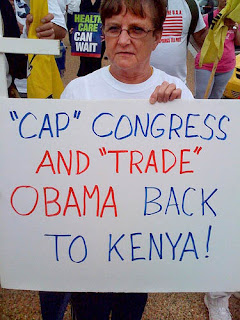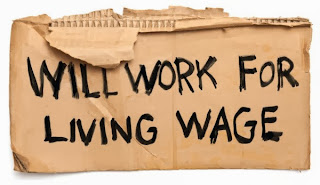





Visit msnbc.com for breaking news, world news, and news about the economy
This is no way to run a government
Just because a drag race doesn't end with someone getting killed, it doesn't mean that drag racing is a safe thing to do.
Even though it looks like Congress will raise the debt ceiling, this is no way to run a government.
Many pundits have pointed to the crisis over the debt ceiling as further evidence that Washington is dysfunctional. They say the inability of President Obama and congressional Democrats and Republicans to reach a deal is another example of how partisan polarization, political incivility and 24-hour media have left our nation's leaders unable to make deals. In their minds, we should not be surprised about what has happened. This was virtually inevitable.
While placing battles in historical perspective, it is also important to recognize when we are seeing something new. The "Washington is dysfunctional" argument has confused chronic institutional problems with the partisan strategy that has been used by the GOP.
The trigger to this crisis, which threatens the health of the nation's economy, was an aggressive move by tea party Republicans -- hesitantly supported by the House leadership -- to hold routine debt ceiling legislation hostage until they received exactly the spending cuts they demanded. Lacking the votes they need for a clean vote on them through the budget process, they have instead forced everyone's hand. Obama has little leverage to do anything but agree to their cuts.
In 1994, Republicans who were elected also arrived to Washington sounding like renegades. They insisted that they would do whatever was necessary to change the status quo, and they refused to compromise with Democrats for the sake of appearing reasonable. South Carolina Congressman Lindsey Graham said, "Ain't nothing was off limits, buddy. You could feed us, wash us and comb us, but we'd still bite."
Most famously, in 1995 and 1996, they were willing to shut down the federal government in their pursuit of deep spending cuts. Eventually, most of the class of 1994 mellowed, realizing that governance required compromise, as did political survival.
What we are seeing with tea party Republicans is something even more dramatic. The new Republicans have been the driving force behind the decision to prevent a routine vote on the debt ceiling -- a routine vote with potentially devastating financial consequences -- to obtain massive cuts in federal spending.
When Obama and many Democrats moved toward their position, they were also unwilling to compromise on how to reduce the deficit. When the president proposed that revenue-raising measures should be part of the package, they refused to budge. House Speaker John Boehner barely received the number of votes he needed for his legislation late last week.
To be sure, this is not the first time the political parties have used the debt ceiling to make a point. In 1966, for example, every House Republican but one (former Speaker Joseph Martin) voted against raising the debt ceiling because, they charged, President Lyndon Johnson was lying about the size of the deficit.
"I think the president probably in a couple of months will come up and say that to win the war in Vietnam, we need a tax increase," warned Missouri Republican Thomas Curtis. "I would much prefer to increase taxes to place a further burden on the national debt." More recently, some Democrats, including then-Sen. Barack Obama, spoke against raising the debt ceiling to protest President George W. Bush's policies.
The difference is that this time around, tea party Republicans have been willing to follow through on the threat, and they have control of the House. This is what has made the situation so dangerous. Previous opposition to raising the debt ceiling has been primarily symbolic.
Usually, the politicians making the argument knew the vote would happen anyway, or they were prepared to change their mind in the end. Tea party Republicans are not kidding. They forced their own leadership to bring the nation to the brink of disaster. They are not doing this through the normal budget process, and they are taking no prisoners.
More than ever, it is incumbent on the Republican leadership to push back against its own members who use these tactics. Even Boehner has seemed to be aware of the economic and political dangers that loom. One can see throughout this debate that he was at pains trying to contain the right wing of his party.
The consequences of default would be potentially disastrous for all Americans, red and blue, and recovery would take a long time. There are other ways Republicans can push for their objectives. In the future, they must do so.
Sources: CNN, C-Span, MSNBC, Youtube







































































.jpg)























No comments:
Post a Comment